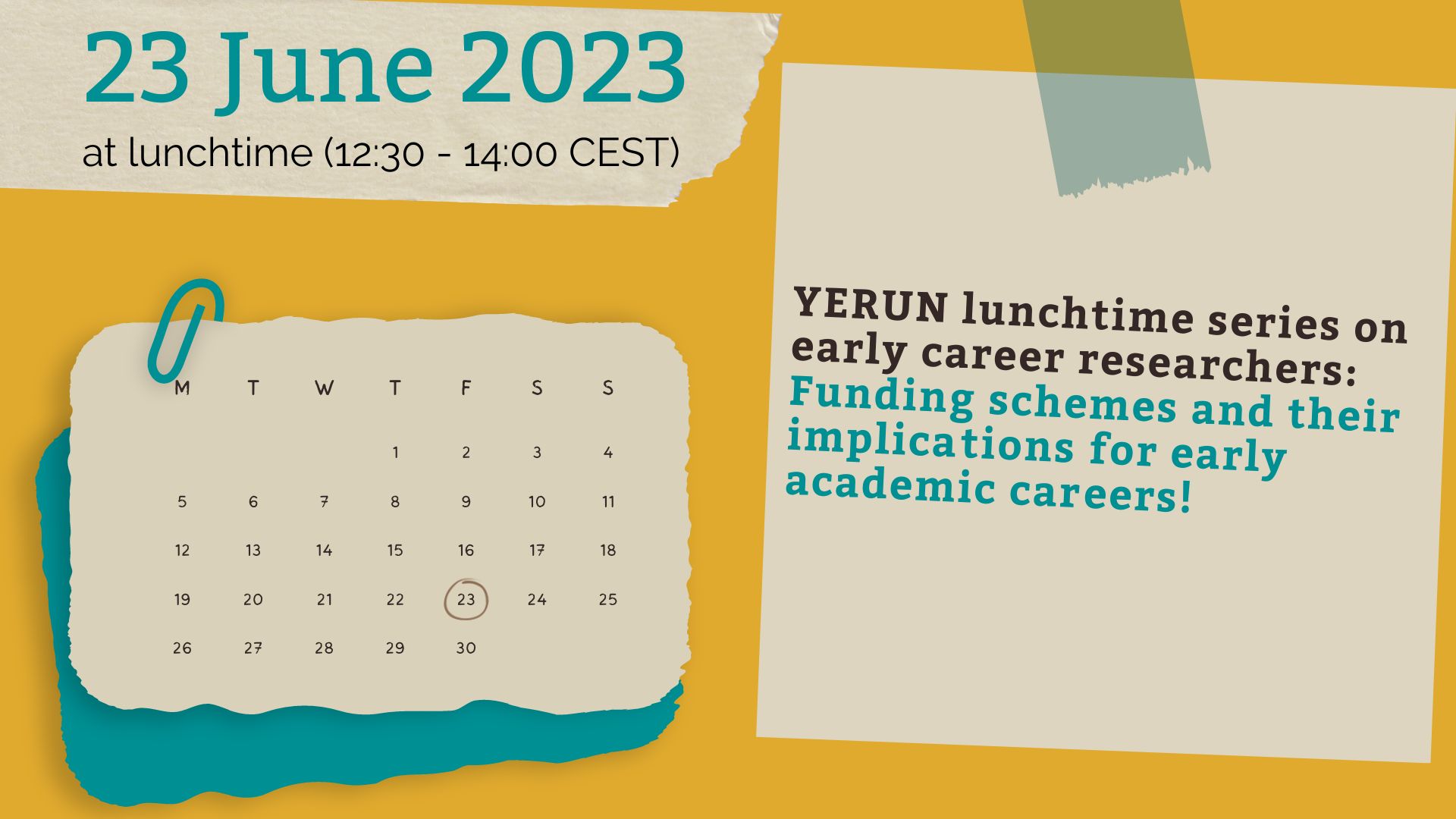In the context of its extensive work on ERA Action 4 (Research Careers) and related initiatives, as well as on ERA Action 3 (Reform of Research Assessment) and within CoARA, YERUN has organised a series of lunchtime events in June, dedicated to Early Career Researchers (ECRs).
The third event in the series took place on 23 June 2023. It focused on funding schemes and how, together with legislation, they affect workforce strategies (including careers and development) that universities can adopt in relation to early-stage researchers and academics.
Featured speakers included the Co-Chair of ERA Action 4; the Head of Higher Education Policy at the OECD; the Senior Policy Officer for Careers at Science Europe; as well as heads of HR and Academic Affairs services from two YERUN universities (the University of Antwerp and the University of Bremen, respectively) – see the full programme and list of speakers.
Here is a snapshot of the event:
The panellists looked into the funding and legal contexts in which research and academic careers develop in universities. Three key take-aways emerged from the discussions:
- A dangerously large share of university budgets is now made of competitive and short-term project funding, jeopardising the ability of universities to sustain longer-term and coherent Human Resources policies. Public authorities at different levels pass legislation to push universities to offer long-term contracts to ECRs, but do not provide for long-term funding to support them. Short-term, project-based funding is not appropriate at the scale it has now reached and should be rebalanced in favour of more reliable schemes such as baseline and life-cycle funding.
- The dominance of projects in university resources has had perverse effects on their ability to attract and retain the best talent. On the one hand, universities as employers face stiff competition from the industry to attract excellent candidates in R&I where what is on offer on the universities’ side are fixed-term contracts tied to project funding. On the other hand, researchers hired on projects must spend their time doing research in highly specialised settings, which often prevents them from acquiring the expertise and experience in other domains (teaching, leadership, engagement) that are necessary to develop more diverse and successful academic careers, and which universities need to cultivate to fulfil their wider mandate.
- The current budgetary imbalance favouring funding for research projects takes place in a wider context where incentives (in both funding and recognition) are geared towards research rather than other academic duties. An overhaul of such incentives is needed while research and academic assessments are being reevaluated, notably within the Coalition for Advancing Research Assessment (CoARA).
Funding is part and parcel of the discussion around research careers, together with legislation. Universities are committed to playing their part in the collective push for more sustainable and attractive academic and research careers, but these efforts will only fully succeed when funding schemes and legislative initiatives are designed with a holistic mindset. This requires sustained and constructive engagement between all parties, including researchers as well as public and funding authorities. YERUN looks forward to continuing its exchanges with all partners to make our common ambitions a reality.
.
Please find below all the presentations given at the event:
- James Morris – Senior Policy Officer, Science Europe
- Simon Roy – Head of Higher Education Policy, OECD
- Julia Sievers – Head of Academic Affairs, University of Bremen
- Karen Vandevelde – Human Resources Director, University of Antwerp










